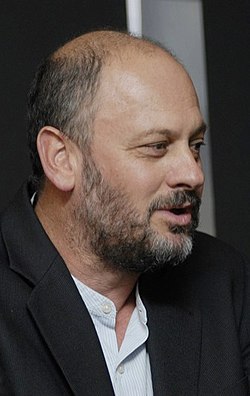Tim Flannery Quote
As long as scepticism is based on a sound understanding of science it is invaluable, for that is how science progresses. But poor criticism can lead those who are unfamiliar with the science involved into doubting everything about climate change predictions.
Tim Flannery
As long as scepticism is based on a sound understanding of science it is invaluable, for that is how science progresses. But poor criticism can lead those who are unfamiliar with the science involved into doubting everything about climate change predictions.
Tags:
science
Related Quotes
Certainly we can say that the pace of modern life, increased and supported by our technology in general and our personal electronics in particular, has resulted in a short attention span and an addict...
Arthur Rosenfeld
Tags:
being, complicated, critical thinking, daoism, emotion, feeling, hectic, life, meditation, modern life
About Tim Flannery
Timothy Fridtjof Flannery (born 28 January 1956) is an Australian mammalogist, palaeontologist, environmentalist, conservationist, explorer, author, science communicator, activist, and public scientist. He is especially known for his 1994 book The Future Eaters, on the natural history of Australasia, which was adapted for television in 2006, and his 2006 book The Weather Makers, about the effects of climate change in Australia.
As a researcher, Flannery had roles at several universities and museums in Australia, specialising in fossil marsupials and mammal evolution. He made notable contributions to the palaeontology of Australia and New Guinea during the 1980s, including reviewing the evolution and fossil records of Phalangeridae and Macropodidae. While mammal curator at the Australian Museum, he undertook a survey of the mammals of Melanesia, where he identified 17 previously undescribed species. He has published widely on the systematics, zoogeography, and biochronology of the mammals of Australia and New Guinea.
He has since written many more books on natural history and environmental topics, including Throwim Way Leg and Chasing Kangaroos, and has appeared on television and in the media. He was awarded Australian of the Year in 2007 for his work and advocacy on environmental issues.
Flannery became prominent for his role in communication, research and advocacy around the issue, particularly in his native Australia. In 2011, he was appointed the Chief Commissioner of the Climate Commission, a federal government body providing information on climate change to the Australian public, until its abolition by the Abbott government in 2013. Flannery and other sacked commissioners later formed the independent Climate Council, which continues to communicate independent climate science to the Australian public. An environmentalist and conservationist, Flannery is a supporter of climate change mitigation, renewable energy transition, phasing out coal power, and rewilding.
As a researcher, Flannery had roles at several universities and museums in Australia, specialising in fossil marsupials and mammal evolution. He made notable contributions to the palaeontology of Australia and New Guinea during the 1980s, including reviewing the evolution and fossil records of Phalangeridae and Macropodidae. While mammal curator at the Australian Museum, he undertook a survey of the mammals of Melanesia, where he identified 17 previously undescribed species. He has published widely on the systematics, zoogeography, and biochronology of the mammals of Australia and New Guinea.
He has since written many more books on natural history and environmental topics, including Throwim Way Leg and Chasing Kangaroos, and has appeared on television and in the media. He was awarded Australian of the Year in 2007 for his work and advocacy on environmental issues.
Flannery became prominent for his role in communication, research and advocacy around the issue, particularly in his native Australia. In 2011, he was appointed the Chief Commissioner of the Climate Commission, a federal government body providing information on climate change to the Australian public, until its abolition by the Abbott government in 2013. Flannery and other sacked commissioners later formed the independent Climate Council, which continues to communicate independent climate science to the Australian public. An environmentalist and conservationist, Flannery is a supporter of climate change mitigation, renewable energy transition, phasing out coal power, and rewilding.
